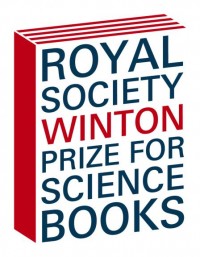By Margaret Harris
The longlist for the 2014 Royal Society Winton Prize for Science Books has been announced today, and, with a few exceptions, I’m not impressed.

I’ll begin with the exceptions. Of the six books on the 12-strong longlist that have come across my desk as Physics World’s reviews editor, two of them – Philip Ball’s Serving the Reich and Pedro Ferreira’s The Perfect Theory – fully deserve to be in contention for the £25,000 prize. I reviewed Ball’s book myself and found it fascinating, and although Physics World’s review of Ferreira’s book won’t be published until July, I can reveal that the reviewer found it “timely, expert and highly readable”. I also gave a pass mark to Brian Clegg’s Dice World, which is a good, serviceable treatment of a topic – quantum randomness – that deserves more love than it gets. Congratulations to all three authors.
But three of the other choices have provoked a few “What were the judges thinking?” outbursts here in the Physics World office. I haven’t read W Bernard Carlson’s Tesla: Inventor of the Electrical Age, but since Caltech physicist David Goodstein’s review for us ended with the words “All told, this is not a very good book”, I’m not tempted. I also haven’t read John Browne’s Seven Elements That Have Changed The World, but Physics World editor Matin Durrani has, and when he saw it on the longlist, his reaction was along the lines of “It was a decent effort, but surely other books were better?”.
The biggest clunker on the list, though, is Stephen Hawking’s memoir My Brief History. Far from being (in the words of judging chair Nicky Clayton) “marvellously written and full of the wonder of science”, I found this book ploddingly written and full of stories that Hawking had already put in his previous books. I can only conclude that the judges were dazzled by the author’s celebrity: Hawking is, after all, one of the most famous scientists in the world, and there are definite PR advantages to having his name in the mix.
As for the non-physics half of the list, I can’t claim any particular expertise. However, George Johnson (longlisted for The Cancer Chronicles) and Mary Roach (Gulp: Adventures of the Alimentary Canal) have good track records as science writers, and I’m intrigued by the blurb for Mark Miodownik’s book Stuff Matters, which suggests that he got stabbed on the London Underground while researching it.
No more than five of the longlisted books can make it onto the shortlist revealed in September, so there’s still plenty of scope for the judges to winnow out lesser entries. Fingers crossed.
Guidelines
Show/hide formatting guidelines
this text was deletedwhere people live in harmony with nature and animals</q>
Some text